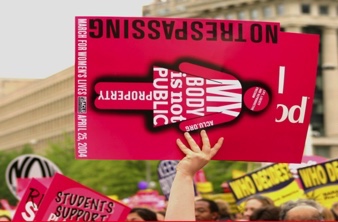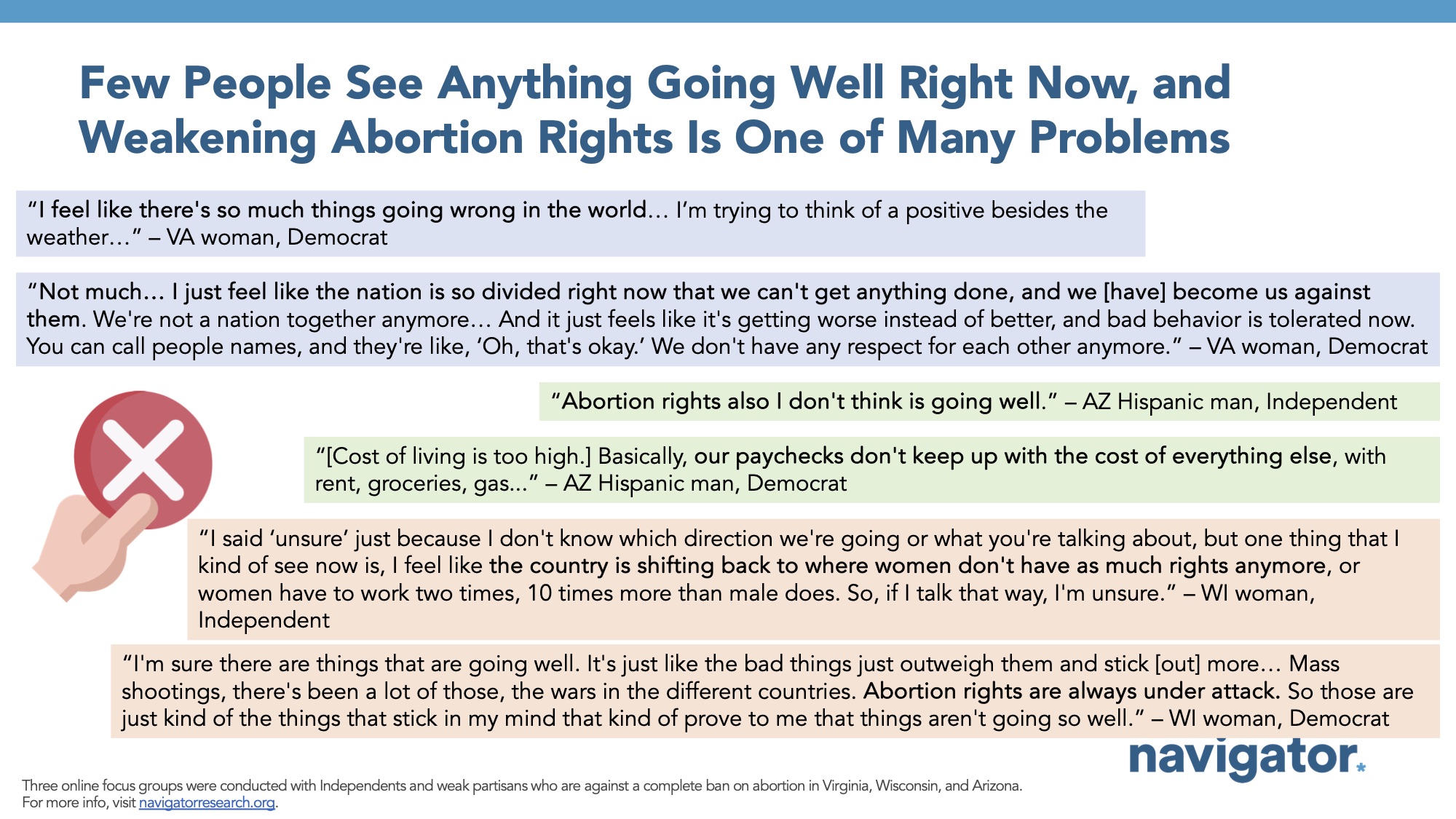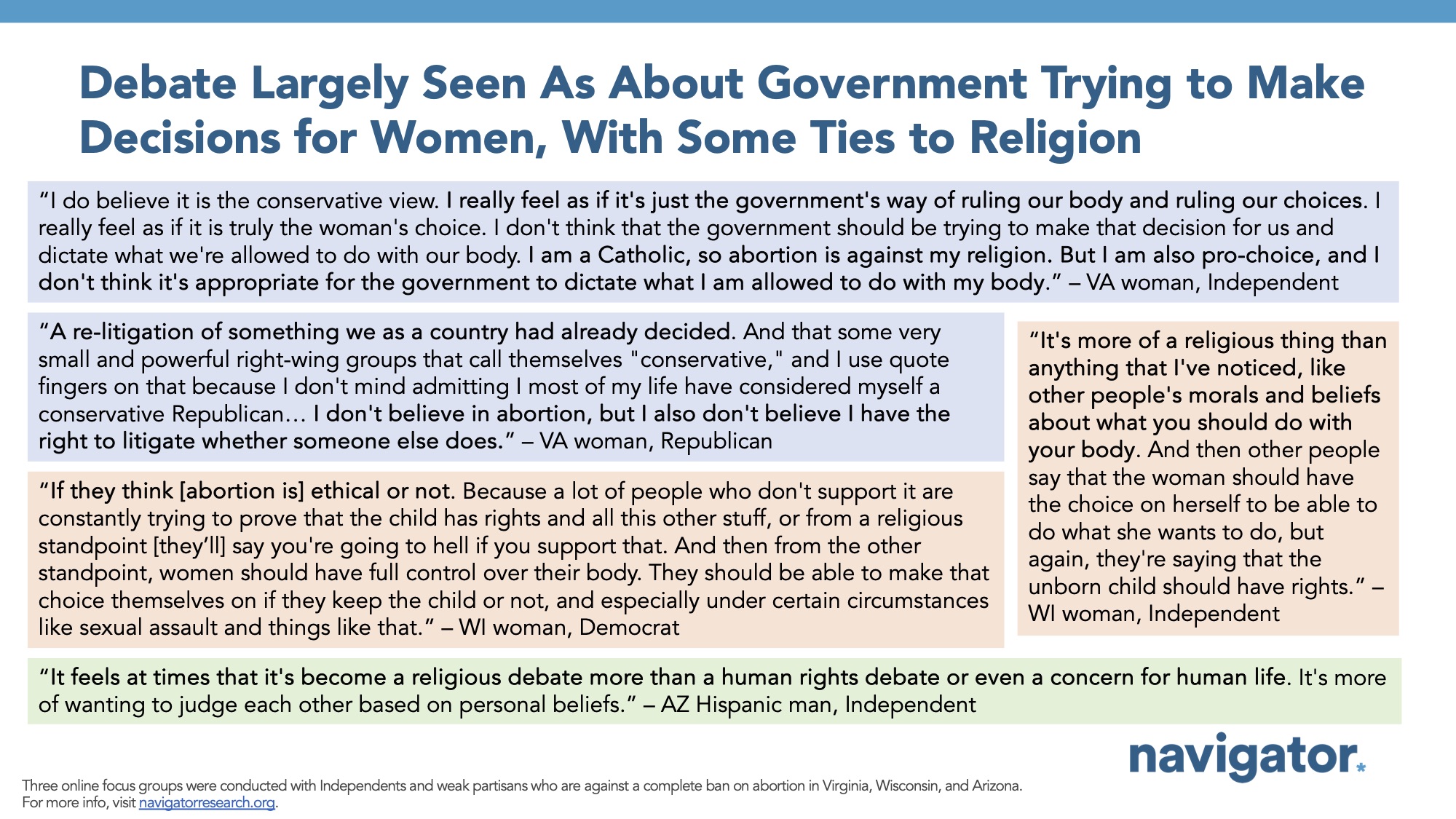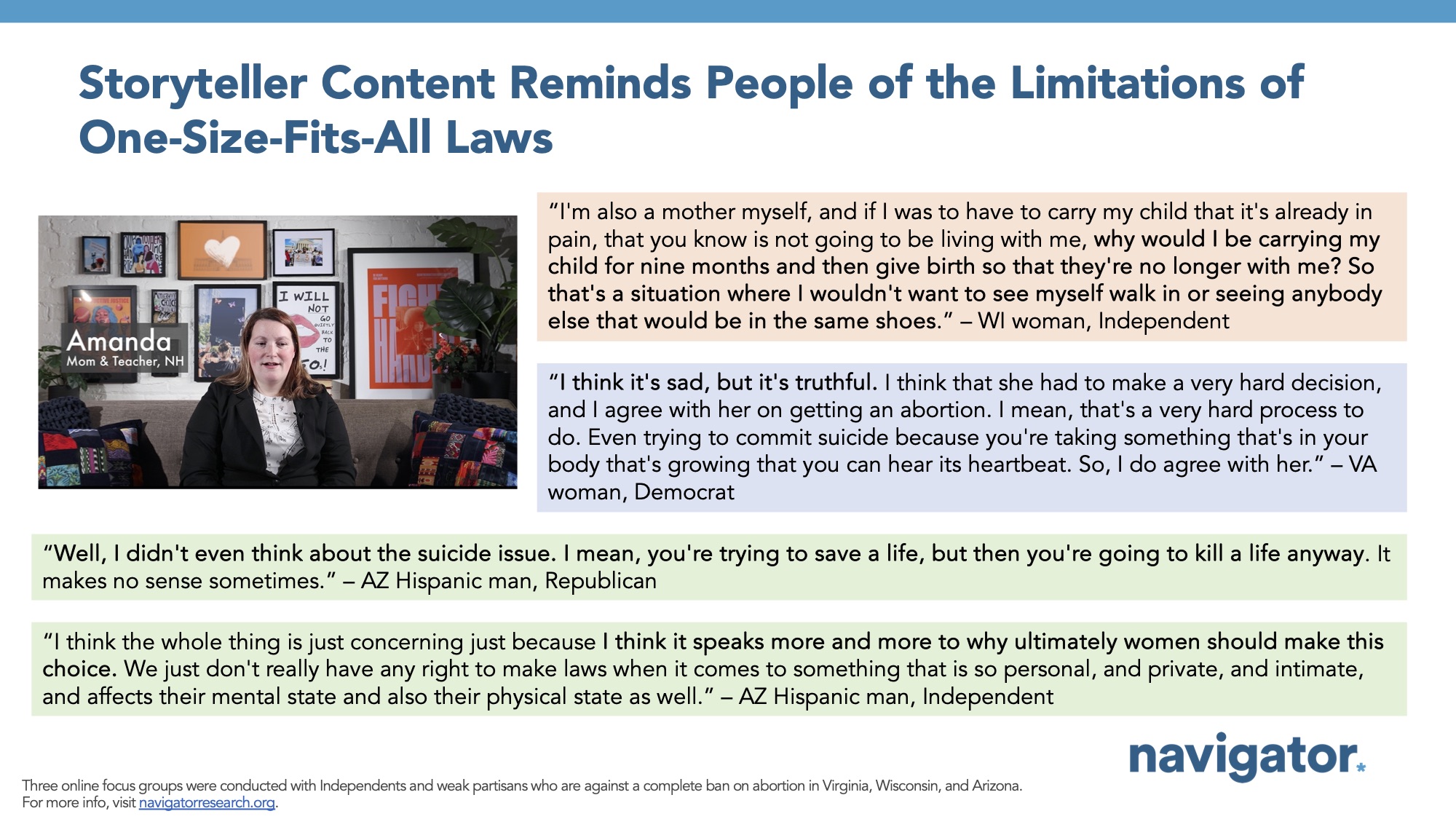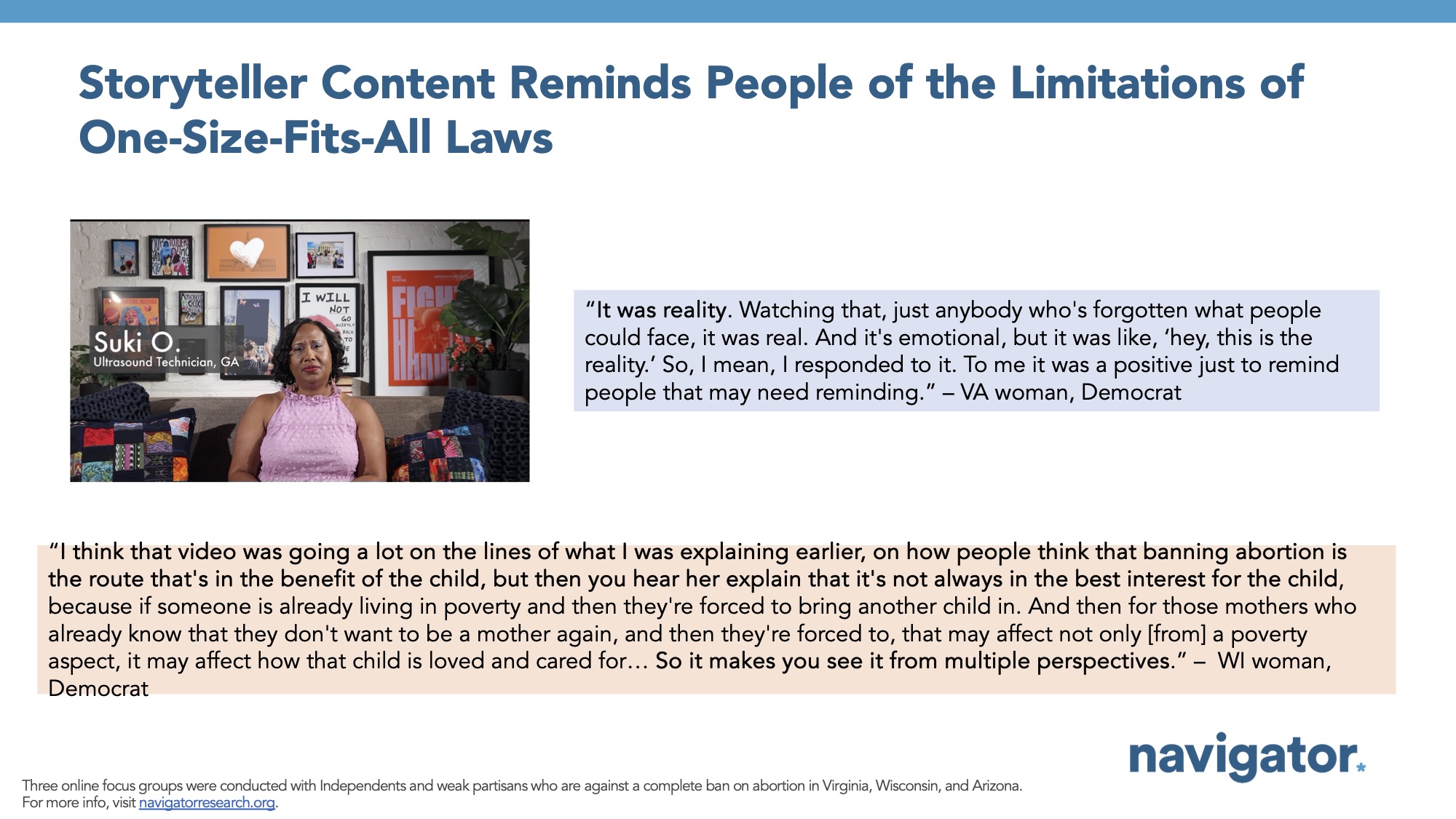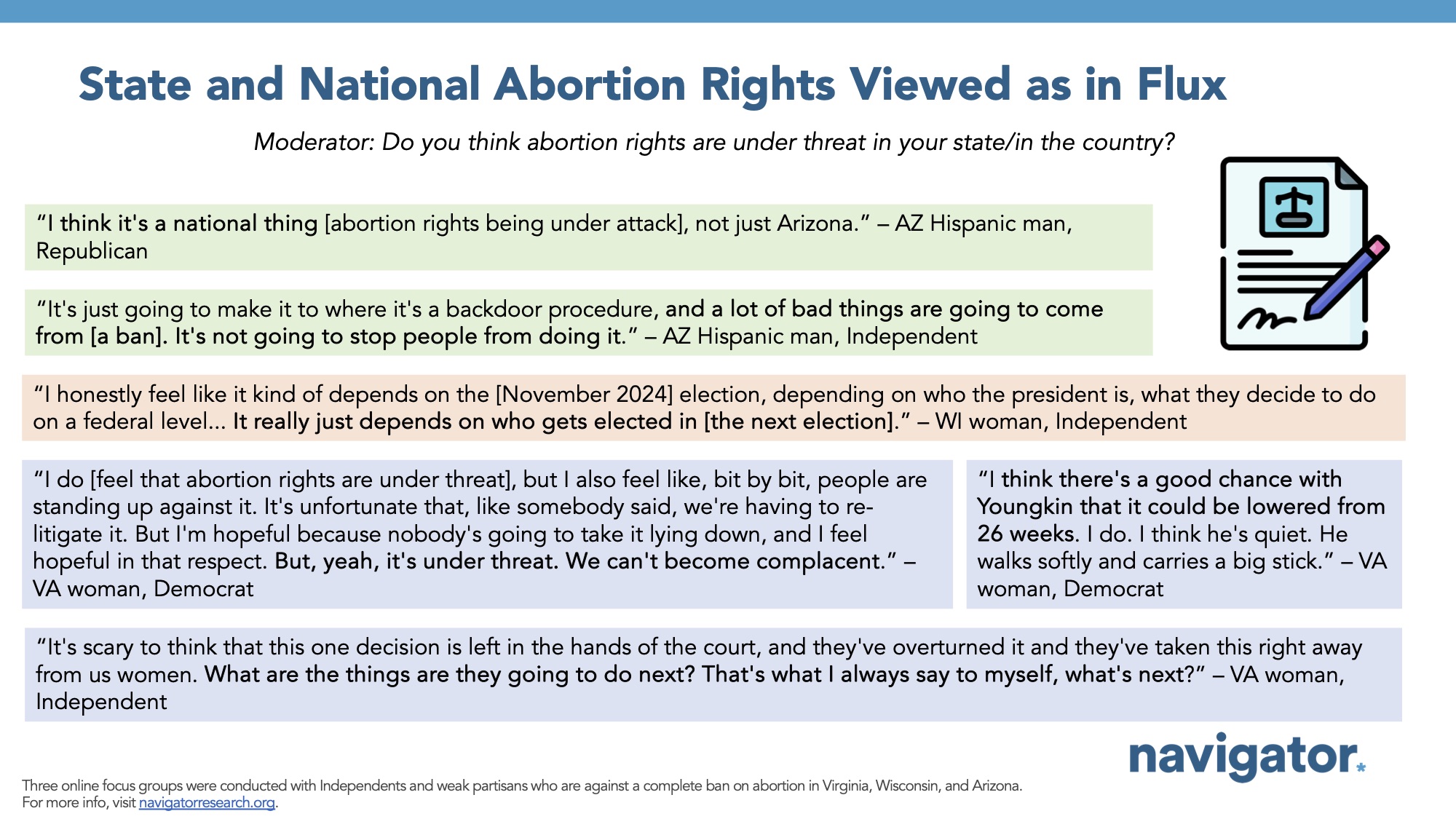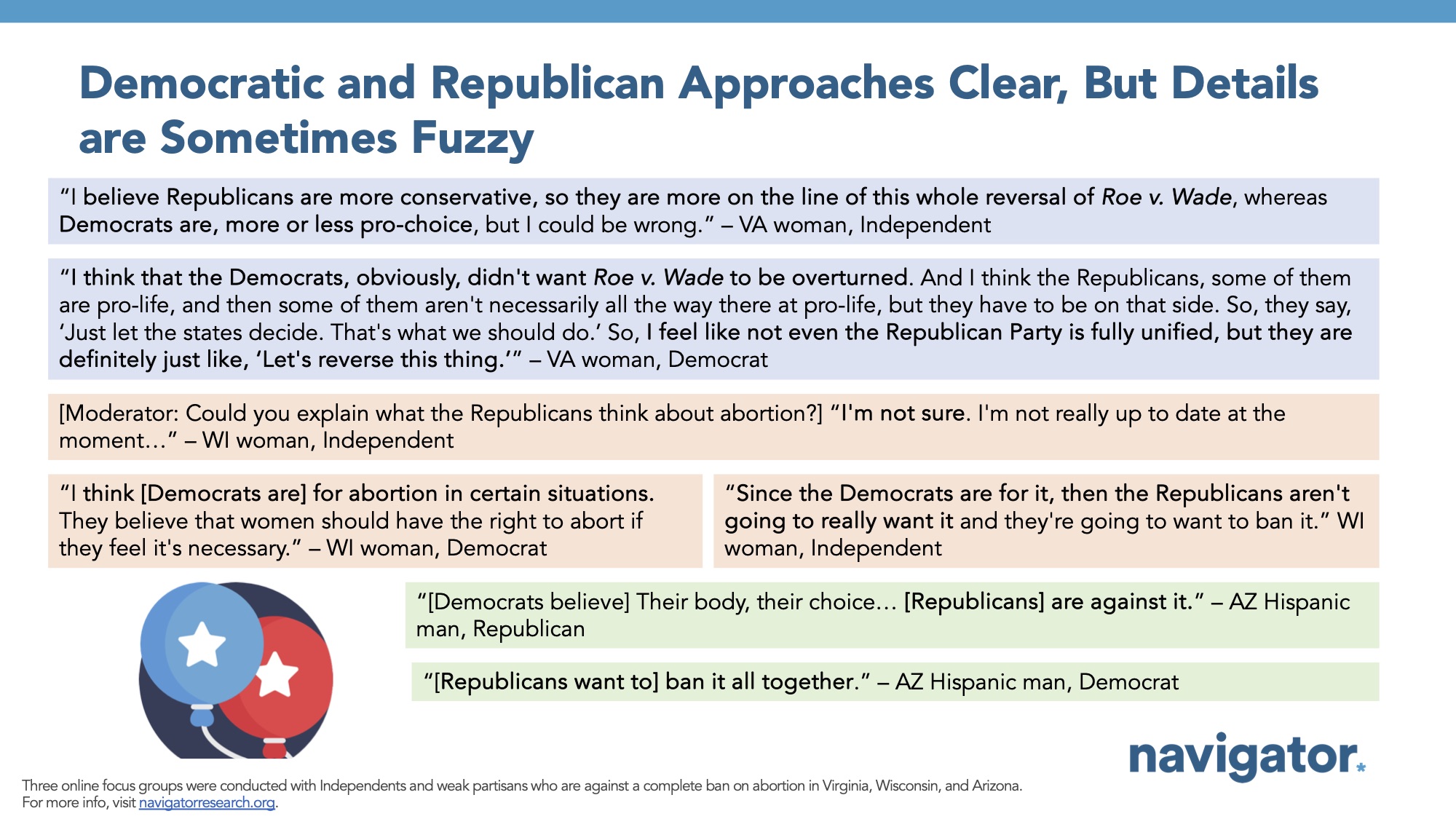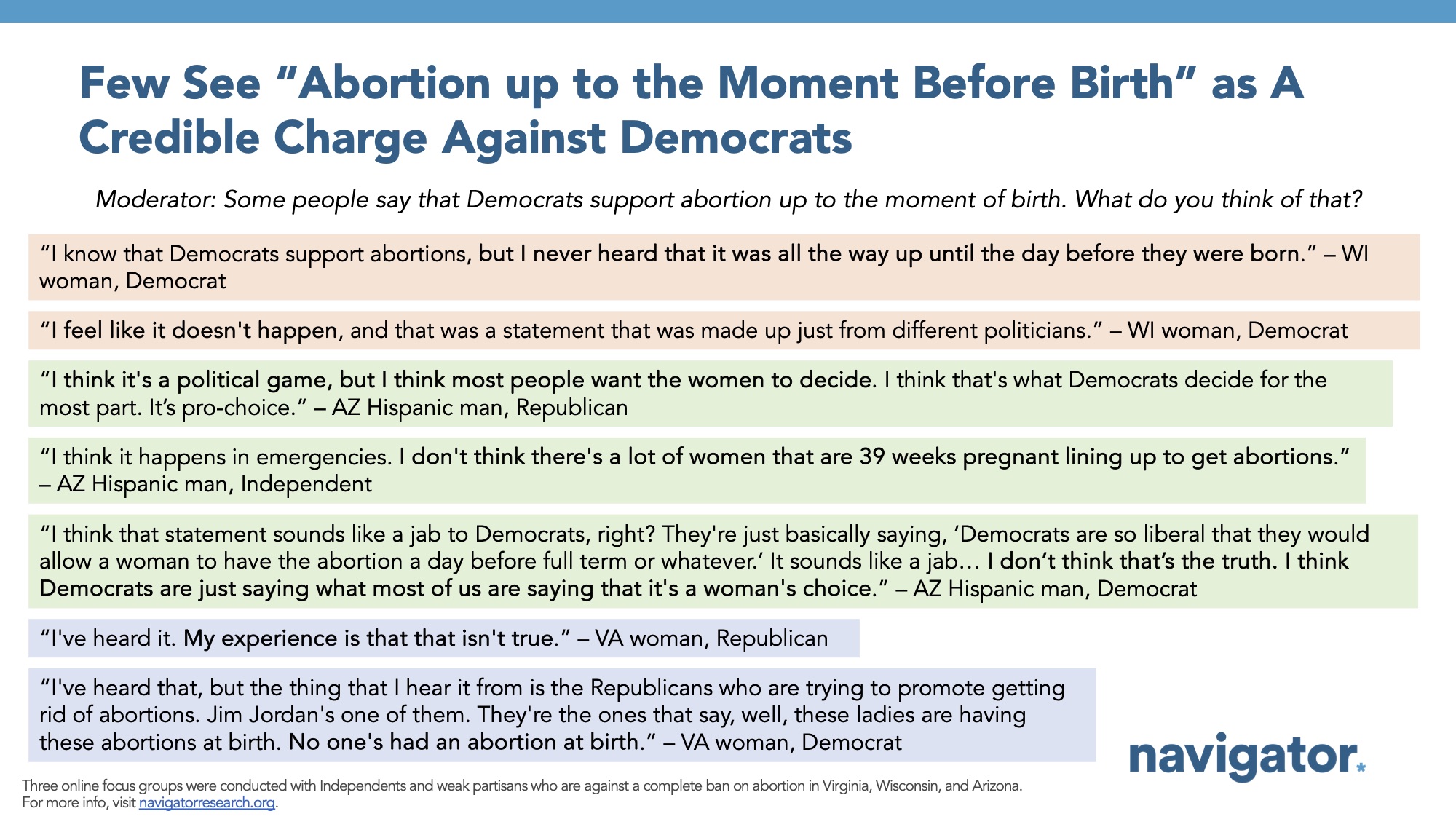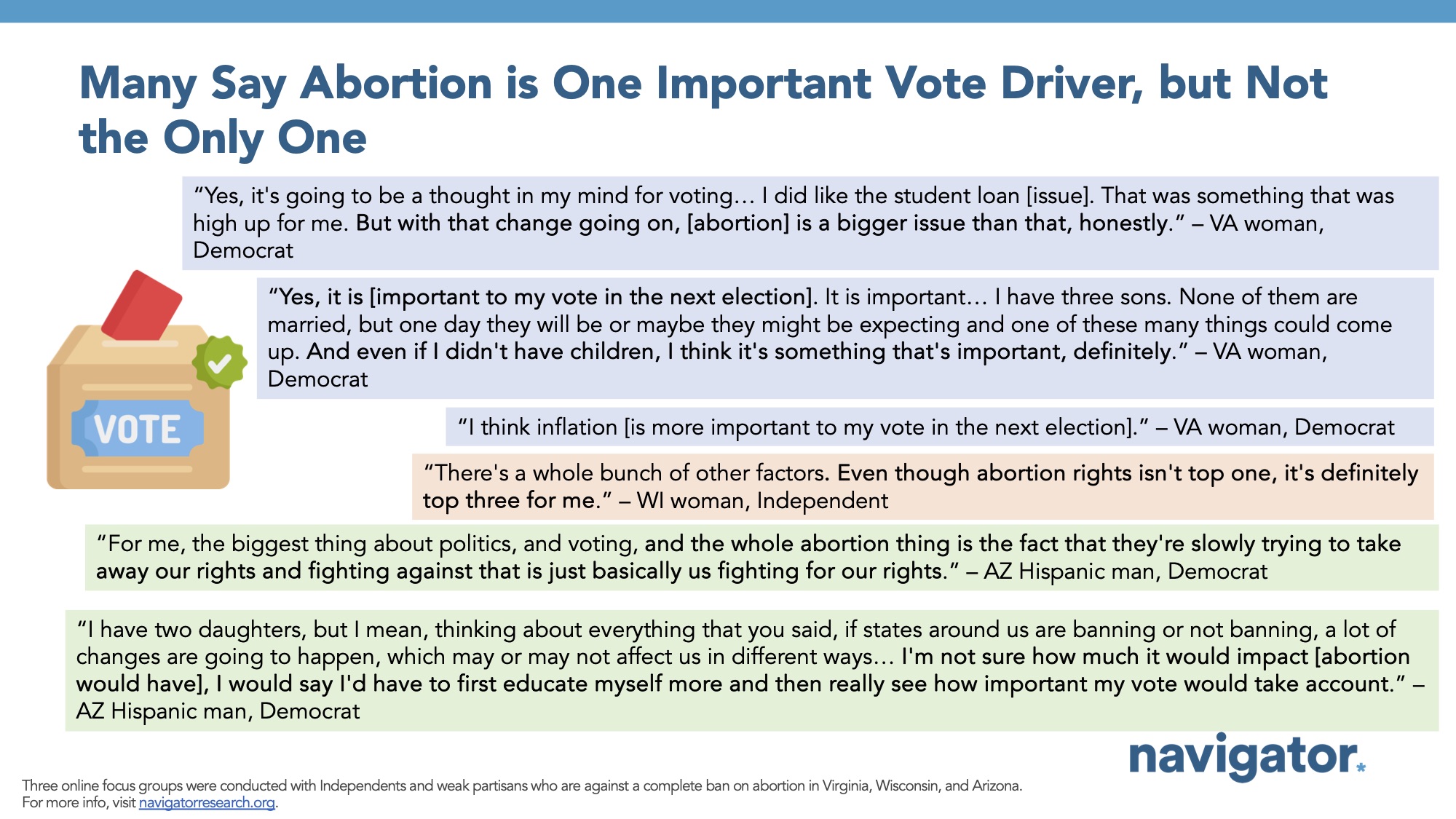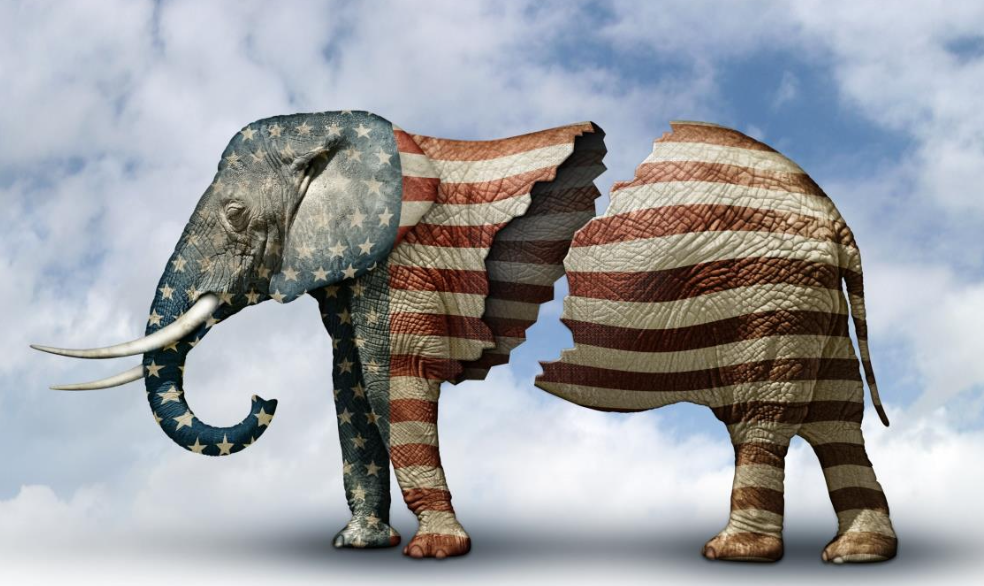Focus Groups: Abortion Rights in the U.S.
This Navigator Research report contains insights from focus groups conducted among independents and weak partisans. The groups were conducted among suburban women in Virginia, young women in Wisconsin, and Hispanic men in Arizona on the latest perceptions surrounding abortion rights in each state and nationally, including assessing how each political party views abortion, and how participants view efforts to ban abortion access altogether or at a certain point in pregnancy.
Virginians, Arizonans, and Wisconsinites on the State of Abortion Rights
Among Americans who have conflicting views on abortion, three in five Americans believe abortion should be legal in all or most cases. We conducted focus groups among individuals who held this belief in Arizona, Wisconsin, and Virginia to better understand their views on abortion, including awareness of current laws, what each party believes when it comes to abortion, and how they assess Republican efforts to frame limits on abortion as reasonable.
- When asked to describe the debate on abortion, themes of government control were heavily prevalent. One woman in Virginia stated: “I really feel as if it’s just the government’s way of ruling our body and ruling our choices. I really feel as if it is truly the woman’s choice. I don’t think that the government should be trying to make that decision for us and dictate what we’re allowed to do with our body.”
- Others noted that the debate was related to religion, as a Wisconsin woman noted: “It’s more of a religious thing than anything that I’ve noticed, like other people’s morals and beliefs about what you should do with your body. And then other people say that the woman should have the choice on herself to be able to do what she wants to do, but again, they’re saying that the unborn child should have rights.” An Arizona man similarly said: “It feels at times that it’s become a religious debate more than a human rights debate or even a concern for human life. It’s more of wanting to judge each other based on personal beliefs.”
Real-life stories illustrate the impact of abortion bans.
Participants were shown two videos: one of an ultrasound technician in Georgia detailing the impacts of lack of abortion access in the state, and another of a mom in New Hampshire explaining her own abortion. In response to the videos, a Wisconsin woman noted: “People think that banning abortion is the route that’s in the benefit of the child, but then you hear her explain that it’s not always in the best interest for the child, because if someone is already living in poverty and then they’re forced to bring another child in. And then for those mothers who already know that they don’t want to be a mother again, and then they’re forced to, that may affect not only on a poverty aspect, it may affect how that child is loved and cared for.” Another Wisconsin woman said: “That was really hard to watch. And I tried to think about it from the standpoint of in a case where abortion would not be legal and there were no exceptions for medical reasons, that really was unsettling to me. So I think, if anything, that really just confirmed for me, especially in cases of medical need, I definitely support the exceptions, and I think that that’s something that should be a non-negotiable.”
- A man in Arizona also responded: “I think the whole thing is just concerning just because I think it speaks more and more to why ultimately women should make this choice. We just don’t really have any right to make laws when it comes to something that is so personal, and private, and intimate, and affects their mental state and also their physical state as well.” A woman in Virginia said: “I think both of those videos are reality checks. I think that any politician who thinks that they have a right to dictate a woman to decide when an abortion is necessary needs to watch both of those videos.”
Abortion rights nationally are viewed as under threat, but many are unclear on state-specific details.
Participants were aware of and concerned by the Supreme Court’s decision to overturn Roe v. Wade last summer, and noted that decisions are now made by each state. Many were disappointed in the Court’s decision, as a Virginia woman noted: “It’s scary to think that this one decision is left in the hands of the Court, and they’ve overturned it and they’ve taken this right away from us women. What are the things they are going to do next?” Many participants viewed abortion rights as under threat, as evidenced by an Arizona man saying: “I think it’s a national thing [abortion rights being under attack], not just Arizona.” Reminder: An August Navigator survey found that seven in ten believed abortion access to be at risk in the country (69 percent), with about half more intensely concerned that the right to an abortion is “very much” at risk (48 percent).
- Awareness is thin among participants in assessing the state of abortion access in their own state. One woman in Virginia said: “I can’t remember if it was 12 or 15 weeks, though. But it could be lowered in Virginia.” A Wisconsin woman similarly was unsure: “I think they’re trying to ban it, but I could be wrong. I could be getting my information mixed up.” Many participants noted that abortion access could change with the next election, as a Virginia woman said: “I think there’s a good chance with Youngkin that it could be lowered from 26 weeks. I do.”
Participants viewed both parties’ stance on abortion clearly.
When asked how participants would describe Democrats’ stance on abortion, men in Arizona said things like “I think they want to give women the right to choose” and “their body, their choice.” Women in Virginia similarly noted: “Democrats [are] pro-choice.” When it came to defining Republicans, the stance was described as they want to “ban it all together” as an Arizona man put it, while a Wisconsin woman connected it to religion: “Republicans were more conservative, probably more religious and are against abortions.”
Characterizations of Democrats believing in abortion “up until the moment before birth” were seen as inflammatory and lacked credibility.
When asked what they thought about the statement that Democrats believe in abortion “up until the moment before birth,” participants found it to be extreme. One Wisconsin woman described her reaction to this as: “I feel like it doesn’t happen, and that was a statement that was made up just from different politicians.” Men in Arizona viewed this charge as a political jab: “I think that statement sounds like a jab to Democrats, right? They’re just basically saying, ‘Democrats are so liberal that they would allow a woman to have the abortion a day before full term or whatever.’ It sounds like a jab… I don’t think that’s the truth. I think Democrats are just saying what most of us are saying that it’s a woman’s choice.” Another Arizona man stated: “I think it happens in emergencies. I don’t think there’s a lot of women that are 39 weeks pregnant lining up to get abortions.” Reminder: our August poll found that pointing out GOP extremism on abortion (63 percent) is more convincing than Republican claims that Democrats believe in abortion up until the moment before birth (37 percent).
Abortion remains a top issue in the context of future elections.
Ahead of the 2023 elections in Virginia, participants there noted that abortion would be a top priority. One Virginia woman said: “Yes, it’s going to be a thought in my mind for voting.” Another Virginia woman noted “abortion is the biggest one [issue] probably.” A woman in Wisconsin said it would be a top concern: “There’s a whole bunch of other factors. Even though abortion rights isn’t top one, it’s definitely top three for me.“
- Men in Arizona also noted the importance of abortion to their vote, as it related to women in their family: “I’ve got two young daughters, and they’re still very young, but it actually becomes very real. The situation used to be a theory or just a conversation, but when you actually have daughters, and you look at a situation where if they so choose to have an abortion, which I believe would ultimately be their right, there’s logistics now you’ve got to worry about. We have the means to do it, but not everyone’s going to be able to just pack up, and take time off, and all the expense associated with doing that, so it’s a complication. It’s a real tangible thing.” Another Arizona man stated: “For me, the biggest thing about politics, and voting, and the whole abortion thing is the fact that they’re slowly trying to take away our rights and fighting against that is just basically us fighting for our rights.”
About The Study
GBAO conducted three online focus groups October 18, 2023 with independent and weak partisan women in Virginia and Wisconsin and independent and weak partisan Hispanic men in Arizona. Some quotes have been lightly edited for brevity. Qualitative results are not statistically projectable.
